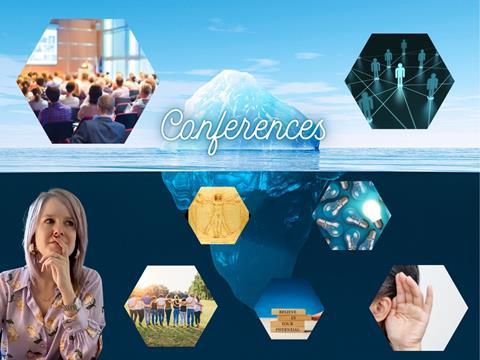
Conferences are often seen by early-career researchers as opportunities to network and present their work. While these aspects are important, there is much more to gain from such events. Isabelle Kohler explores the less obvious benefits of conferences that can significantly influence both your research and career development in unexpected ways.
Last week, I had the privilege of attending the 34th International Symposium on Pharmaceutical and Biomedical Analysis (PBA2024) in Geneva, Switzerland. I was very excited to attend this conference for many reasons: the Chair was my PhD promoter, I knew I’d reconnect with past colleagues and scientific friends, and I was invited to give a workshop with NextMinds.
I’ve always loved going to conferences – not just for visiting new places and hearing about the latest scientific advances, but because I always return home with fresh ideas and new people in my network.
Many young researchers view conferences as opportunities to network and present their work, whether through a poster or oral presentation. That’s true, but it’s only the tip of the iceberg. Conferences provide far more value and shape your career and development at every stage.
More than business cards
Networking at conferences goes deeper than exchanging business cards or connecting on LinkedIn: it’s about building genuine, long-lasting relationships that lead to collaborations, mentorships, and even friendships. My network has been crucial in every career move since my PhD: it helped me learn about positions before they were advertised, find a host institute for my postdoc, and gain support during job applications. Now, it actively supports me as an entrepreneur.
Conferences also reveal the human side of researchers. We see more than just their scientific work; we get to know their personalities and interests. This is not only helpful when considering potential collaborations or job opportunities, but it also reminds us that the ‘big names’ are human beings, too. Nearly all the collaborative projects I’ve set up have been with people I had met in person and with whom I connected on a personal level.
Change of perspective
Furthermore, attending conferences is an excellent way to break away from our daily routines and gain new inspiration. Traveling to a new location, listening to interesting presentations, and engaging with both new and familiar faces can provide a well-deserved change of perspective. It’s refreshing to realize that others face similar (or worse) challenges, making our own struggles more bearable. As a PhD student, hearing about peers who had difficult lab or supervisor situations helped me appreciate my own.
Conferences help us refine our ‘scientific persona’. We learn how to present ourselves and our work more effectively, communicate with scientists from other disciplines, brand ourselves, and spot emerging trends in our field. These skills are invaluable for navigating a PhD and preparing for the next steps in our careers.
Intellectual gossip
Finally, one of the most underrated aspects of conferences is the exchange of what I call ‘intellectual gossip’. This includes the off-the-record insights shared during social moments – new funding opportunities, research directions, career updates, or job openings. This insider information can be incredibly valuable for shaping our research and career decisions.
In conclusion, conferences offer far more than just a platform for presenting our research. They’re catalysts for professional growth, sources of inspiration, and creation of long-lasting professional relationships. So, the next time you consider attending a conference, remember: you’re not just going to present a poster or listen to talks. You’re actually embarking on a journey that could shape your career and your scientific worldview in ways you never anticipated.
If you are interested in learning more about how to navigate academia and get the best out of conference trips, do not hesitate to join the NextMinds Community! For this, you have plenty of choices: visit NextMinds website to learn more about my work, sign up for the newsletter, and follow me and NextMinds on LinkedIn.


















Nog geen opmerkingen